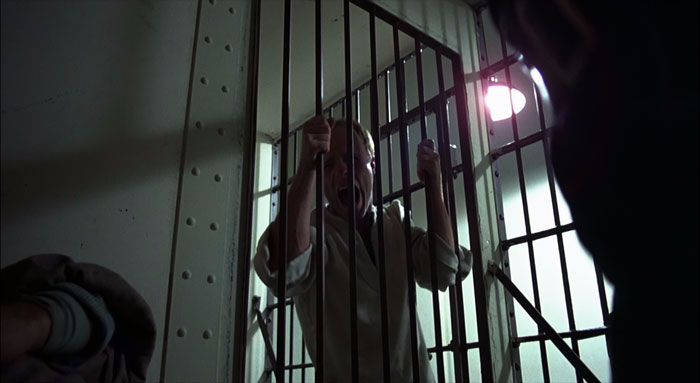
George A. Romero’s Knightriders
*½/**** Image B+ Sound B Extras A
starring Ed Harris, Gary Lahti, Tom Savini, Amy Ingersol
written and directed by George A. Romero
MONKEY SHINES
*½/**** Image B- Sound B Extras C+
starring Jason Beghe, John Pankow, Kate McNeil, Joyce Van Patten
based on the novel by Michael Stewart
written for the screen and directed by George A. Romero
THE DARK HALF
**/**** Image B Sound B Extras A
starring Timothy Hutton, Amy Madigan, Julie Harris, Michael Rooker
based on the book by Stephen King
written for the screen and directed by George A. Romero
by Walter Chaw Knightriders, George A. Romero’s very own Fast Company, is another of the earnestly socially-conscious filmmaker’s earnestly socially-conscious films, though one without the benefit of a metaphor that holds any kind of water. It doesn’t even have an argument that makes sense. It feels like Romero over-identifying with the topic and losing the thread somewhere along the way–and padding the runtime with far too many pedestrian bike stunts. There’s something to be said for personal projects (Romero’s work seems like it’s all personal, frankly), but with that intimacy comes real peril. I will say Romero’s Night of the Living Dead is a no-kidding masterpiece. It’s one of the best films ever made and perhaps the single most important Civil Rights picture, too. I’m partial to his Day of the Dead as well, for the cleanness of its execution and for the interesting things it has to say about identity and the military-industrial complex. It’s fair to wonder, then, if Romero is tied so inextricably to the zombie genre not because (or not just because) of timeliness (and that he essentially invented an entire subgenre with a legion of imitators), but also because without zombies, his stuff is only leaden and clumsy. Without zombies functioning as they do, as both grand bogey and versatile metaphor, Romero’s weighed down by a lethal payload of well-meant proselytizing, and just like that the flat artlessness of his films feels less “spartan” on purpose than “affectless” by accident.

